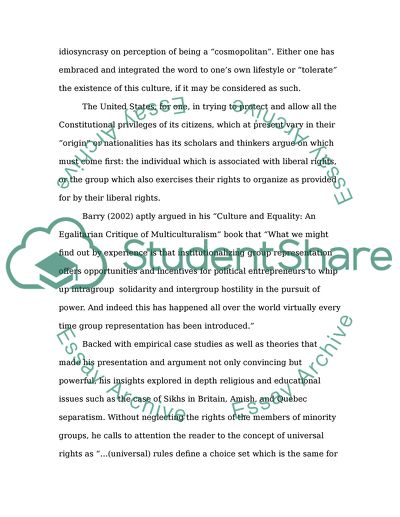Cite this document
(“Cosmopolitanism Must Be Left as an Individual Choice Essay”, n.d.)
Cosmopolitanism Must Be Left as an Individual Choice Essay. Retrieved from https://studentshare.org/miscellaneous/1504726-cosmopolitanism-must-be-left-as-an-individual-choice
Cosmopolitanism Must Be Left as an Individual Choice Essay. Retrieved from https://studentshare.org/miscellaneous/1504726-cosmopolitanism-must-be-left-as-an-individual-choice
(Cosmopolitanism Must Be Left As an Individual Choice Essay)
Cosmopolitanism Must Be Left As an Individual Choice Essay. https://studentshare.org/miscellaneous/1504726-cosmopolitanism-must-be-left-as-an-individual-choice.
Cosmopolitanism Must Be Left As an Individual Choice Essay. https://studentshare.org/miscellaneous/1504726-cosmopolitanism-must-be-left-as-an-individual-choice.
“Cosmopolitanism Must Be Left As an Individual Choice Essay”, n.d. https://studentshare.org/miscellaneous/1504726-cosmopolitanism-must-be-left-as-an-individual-choice.


